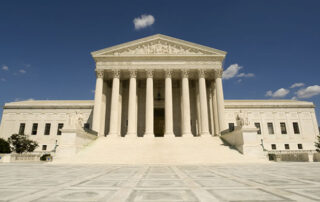
Environmental employees may file a complaint if their employer retaliates against them with unfavorable personnel action because they report environmental violations. The following is a list of statutes that protect environmental whistleblowers.
The Asbestos Hazard Emergency Response Act (AHERA) provides protections for individuals who report potential violations of environmental laws relating to asbestos in elementary and secondary schools.
The Clean Air Act (CAA) provides protection for employees who report potential violations regarding air emissions from area, stationary and mobile sources into the air.
The Comprehensive Environmental Response, Compensation and Liability Act (CERCLA) provides protections for employees who report potential violations regarding clean-up of uncontrolled or abandoned hazardous waste sites as well as accidents, spills, and other emergency releases of pollutants and contaminants into the environment.
The Federal Water Pollution Control Act (FWPCA) provides protections for employees who report potential violations regarding discharges of pollutants into the waters of the United States.
The Safe Drinking Water Act (SDWA) provides protection for employees who report potential violations regarding all waters actually and potentially designed for drinking use, whether from above ground or underground sources.
The Solid Waste Disposal Act (SWDA) provides protections for employees who report potential violations regarding the disposal of solid and hazardous waste at active and future facilities.
The Toxic Substances Control Act (TSCA) provides protections for employees who report potential violations regarding industrial chemicals currently produced or imported into the United States.
If your employer is covered under one of these statutes, it may not discharge or in any manner retaliate against you because you reported potential violations of environmental laws and regulations. Your employer may not discharge or in any manner retaliate against you because you filed, caused to be filed, participated in or assisted in a proceeding under one of these laws or regulations.
Your employer may be found to have violated one of these statutes if your protected activity was a motivating factor in its decision to take an unfavorable personnel action against you, such as:
• Firing or laying off
• Blacklisting
• Demoting
• Denying overtime or promotion
• Disciplining
• Denying benefits
• Failing to hire or rehire
• Intimidation
• Reassignment affecting promotion prospects
• Reducing pay or hours
Depending on the statute, complaints must be filed within 30 days under CAA, CERCLA, FWPCA, SDWA, SWDA, TSCA or 90 days for AHERA after the alleged unfavorable personnel action occurs.
NACOL LAW FIRM P.C.
8144 Walnut Hill Lane
Suite 1190
Dallas, Texas 75231
972-690-3333
Office Hours
Monday – Thursday, 8am – 5pm
Friday, 8:30am – 5pm
OUR BLOGS
SEARCH
JOIN OUR NETWORK

Attorney Mark A. Nacol is board certified in Civil Trial Law by the Texas Board of Legal Specialization



